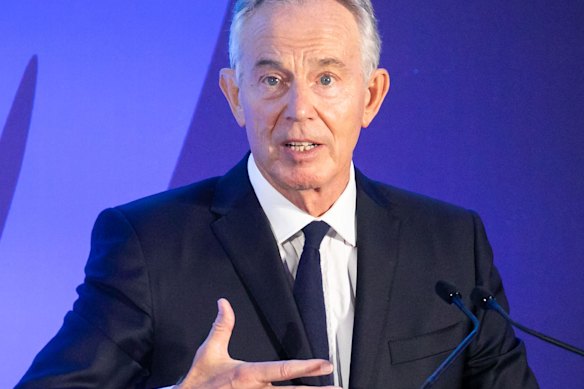
News
September 26, 2025
Could Tony Blair run Gaza?
The former British PM is touting his credentials to lead a transitional government when the fighting eventually stops – but major obstacles remain.
**Could Tony Blair run Gaza?**
The idea of former British Prime Minister Tony Blair leading a transitional government in Gaza after the current conflict has surfaced, with Blair reportedly positioning himself as a potential candidate for the role. While the prospect might seem surprising, Blair's long history in international diplomacy and his previous involvement in the Middle East peace process make him a figure with relevant experience. However, significant obstacles stand in the way of him assuming such a position.
Blair served as the Quartet's Special Envoy to the Middle East from 2007 to 2015, a role that involved mediating between Israel and the Palestinians. This experience gives him a deep understanding of the complexities of the region, the key players involved, and the historical context of the Israeli-Palestinian conflict. His supporters argue that his familiarity with the political landscape, coupled with his international standing, could make him an effective leader in navigating the delicate transition period following the cessation of hostilities.
The notion of a transitional government arises from the anticipated need for an interim administration to govern Gaza after the fighting stops. The current conflict has created a humanitarian crisis and widespread devastation, necessitating a stable and capable governing body to oversee reconstruction efforts, restore essential services, and pave the way for a more permanent political solution.
However, Blair's potential leadership faces considerable hurdles. His involvement in the Iraq War remains a contentious issue, particularly in the Arab world, and could undermine his credibility among Palestinians. Furthermore, the acceptability of any leader in Gaza will depend heavily on the approval of key stakeholders, including Israel, Hamas, the Palestinian Authority, and regional powers. Securing consensus among these diverse and often conflicting parties would be a monumental challenge.
The question of legitimacy also looms large. For a transitional government to be effective, it must be perceived as fair and representative by the Gazan population. Blair, as an external figure, would need to demonstrate a deep understanding of the needs and aspirations of the people of Gaza and work collaboratively with local leaders to ensure that their voices are heard.
Ultimately, the possibility of Tony Blair leading a transitional government in Gaza remains speculative. While his experience and international connections could be valuable assets, the significant political and logistical challenges involved suggest that the path to such a leadership role is far from clear.
The idea of former British Prime Minister Tony Blair leading a transitional government in Gaza after the current conflict has surfaced, with Blair reportedly positioning himself as a potential candidate for the role. While the prospect might seem surprising, Blair's long history in international diplomacy and his previous involvement in the Middle East peace process make him a figure with relevant experience. However, significant obstacles stand in the way of him assuming such a position.
Blair served as the Quartet's Special Envoy to the Middle East from 2007 to 2015, a role that involved mediating between Israel and the Palestinians. This experience gives him a deep understanding of the complexities of the region, the key players involved, and the historical context of the Israeli-Palestinian conflict. His supporters argue that his familiarity with the political landscape, coupled with his international standing, could make him an effective leader in navigating the delicate transition period following the cessation of hostilities.
The notion of a transitional government arises from the anticipated need for an interim administration to govern Gaza after the fighting stops. The current conflict has created a humanitarian crisis and widespread devastation, necessitating a stable and capable governing body to oversee reconstruction efforts, restore essential services, and pave the way for a more permanent political solution.
However, Blair's potential leadership faces considerable hurdles. His involvement in the Iraq War remains a contentious issue, particularly in the Arab world, and could undermine his credibility among Palestinians. Furthermore, the acceptability of any leader in Gaza will depend heavily on the approval of key stakeholders, including Israel, Hamas, the Palestinian Authority, and regional powers. Securing consensus among these diverse and often conflicting parties would be a monumental challenge.
The question of legitimacy also looms large. For a transitional government to be effective, it must be perceived as fair and representative by the Gazan population. Blair, as an external figure, would need to demonstrate a deep understanding of the needs and aspirations of the people of Gaza and work collaboratively with local leaders to ensure that their voices are heard.
Ultimately, the possibility of Tony Blair leading a transitional government in Gaza remains speculative. While his experience and international connections could be valuable assets, the significant political and logistical challenges involved suggest that the path to such a leadership role is far from clear.
Category:
World